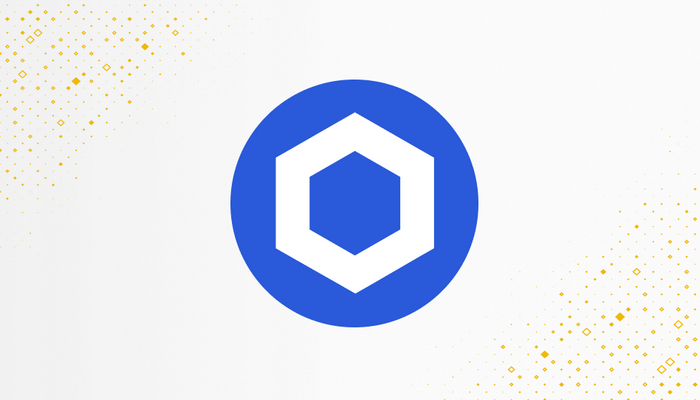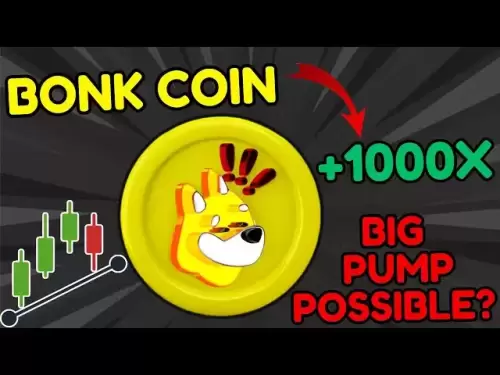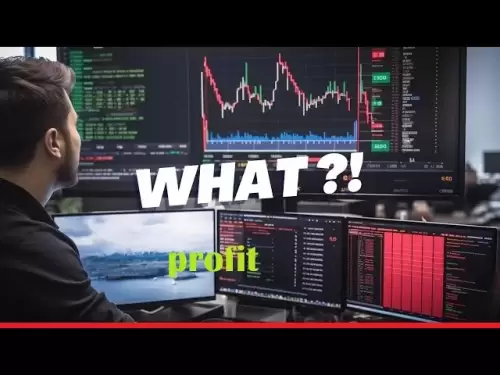-
 Bitcoin
Bitcoin $101,898.5005
-0.75% -
 Ethereum
Ethereum $2,258.1125
-1.07% -
 Tether USDt
Tether USDt $1.0004
0.01% -
 XRP
XRP $2.0178
-2.93% -
 BNB
BNB $624.0243
-1.53% -
 Solana
Solana $134.3298
-0.90% -
 USDC
USDC $0.9999
0.01% -
 TRON
TRON $0.2675
-2.05% -
 Dogecoin
Dogecoin $0.1538
-1.96% -
 Cardano
Cardano $0.5482
-1.11% -
 Hyperliquid
Hyperliquid $35.5636
5.45% -
 Bitcoin Cash
Bitcoin Cash $453.4902
-1.66% -
 Sui
Sui $2.5134
-2.97% -
 UNUS SED LEO
UNUS SED LEO $9.1292
1.77% -
 Chainlink
Chainlink $11.8457
-1.60% -
 Stellar
Stellar $0.2312
-2.73% -
 Avalanche
Avalanche $16.9721
0.29% -
 Toncoin
Toncoin $2.7549
-3.82% -
 Shiba Inu
Shiba Inu $0.0...01081
-1.10% -
 Litecoin
Litecoin $80.8250
-0.71% -
 Hedera
Hedera $0.1374
0.21% -
 Monero
Monero $305.4827
-2.36% -
 Ethena USDe
Ethena USDe $1.0006
0.00% -
 Dai
Dai $1.0000
-0.01% -
 Polkadot
Polkadot $3.2085
-3.12% -
 Bitget Token
Bitget Token $4.0845
-3.13% -
 Uniswap
Uniswap $6.3353
-1.63% -
 Pi
Pi $0.5085
-0.70% -
 Pepe
Pepe $0.0...08913
-3.82% -
 Aave
Aave $232.7090
-0.58%
How to get LINK coins? One article to understand how to get LINK coins
Purchase LINK on reputable cryptocurrency exchanges like Binance to effortlessly obtain these coveted tokens and leverage their decentralized oracle network.
Oct 13, 2024 at 06:12 am

How to Get LINK Coins
Chainlink (LINK) is an Ethereum-based decentralized oracle network that provides real-world data to smart contracts. Here are the main methods to obtain LINK coins:
1. Purchase on Cryptocurrency Exchanges:
LINK can be purchased directly from cryptocurrency exchanges like Binance, Coinbase, and Kraken. These exchanges allow users to buy and sell LINK using fiat currencies or other cryptocurrencies.
2. Earn as Rewards for Staking:
LINK holders can participate in staking, which involves locking their LINK tokens in a staking pool to help validate transactions on the Chainlink network. As a reward, stakers can earn LINK tokens over time.
3. Participate in the LINK Ecosystem:
LINK can be acquired by contributing to the Chainlink ecosystem. This includes:
- Running a node on the Chainlink network
- Providing oracles and data feeds
- Developing applications using Chainlink
4. Receive as Payment for Services:
Some businesses and individuals may offer LINK as payment for services related to the Chainlink network, such as data provision or smart contract development.
5. Purchase LINK through Decentralized Exchanges:
Decentralized exchanges (DEXs) allow users to trade LINK directly without intermediaries. Popular DEXs include Uniswap, SushiSwap, and 1inch.
6. Obtain through Airdrops and Giveaways:
Occasionally, the Chainlink team or partner projects may distribute LINK coins to users as airdrops or giveaways to promote the adoption of the network.
7. Earn LINK from Yield Farming:
Some decentralized finance (DeFi) platforms offer yield farming opportunities that allow users to earn LINK tokens by providing liquidity to LINK pools or lending LINK to borrowers.
8. Convert Other Cryptocurrencies:
Users can use decentralized exchanges or services like Changelly or CoinSwitch to convert other cryptocurrencies into LINK.
9. Use Services that Accept LINK:
Certain merchants and service providers may accept LINK as a payment option. This provides an indirect way to acquire LINK coins.
10. Join Rewards Programs:
Some crypto rewards programs, such as Coinbase Earn and Binance Earn, offer incentives to users who learn about and interact with the Chainlink ecosystem. These programs may provide small amounts of LINK as compensation.
It's important to remember that the availability and methods of acquiring LINK coins may vary depending on factors such as location, regulatory restrictions, and the specific platforms or programs involved.
Disclaimer:info@kdj.com
The information provided is not trading advice. kdj.com does not assume any responsibility for any investments made based on the information provided in this article. Cryptocurrencies are highly volatile and it is highly recommended that you invest with caution after thorough research!
If you believe that the content used on this website infringes your copyright, please contact us immediately (info@kdj.com) and we will delete it promptly.
- Cryptocurrencies, Coingecko, and Trending Tokens: What's Hot Now?
- 2025-06-23 23:05:12
- Bitcoin, Meerkat, and Onchain Engagement: A New Era of Crypto
- 2025-06-23 23:25:12
- Cloud Mining, Bitcoin, and XRP: A 2025 Perspective
- 2025-06-23 23:25:12
- Neo Pepe Coin: Meme Crypto with Explosive Potential?
- 2025-06-23 23:45:12
- FUNToken: Decoding Past Trends and Getting Started in the Gaming Crypto Sphere
- 2025-06-23 22:25:12
- Eyenovia Goes Crypto: A HYPE Treasury and Potential Rebrand
- 2025-06-23 23:45:12
Related knowledge

How to customize USDT TRC20 mining fees? Flexible adjustment tutorial
Jun 13,2025 at 01:42am
Understanding USDT TRC20 Mining FeesMining fees on the TRON (TRC20) network are essential for processing transactions. Unlike Bitcoin or Ethereum, where miners directly validate transactions, TRON uses a delegated proof-of-stake (DPoS) mechanism. However, users still need to pay bandwidth and energy fees, which are collectively referred to as 'mining fe...

USDT TRC20 transaction is stuck? Solution summary
Jun 14,2025 at 11:15pm
Understanding USDT TRC20 TransactionsWhen users mention that a USDT TRC20 transaction is stuck, they typically refer to a situation where the transfer of Tether (USDT) on the TRON blockchain has not been confirmed for an extended period. This issue may arise due to various reasons such as network congestion, insufficient transaction fees, or wallet-rela...

How to cancel USDT TRC20 unconfirmed transactions? Operation guide
Jun 13,2025 at 11:01pm
Understanding USDT TRC20 Unconfirmed TransactionsWhen dealing with USDT TRC20 transactions, it’s crucial to understand what an unconfirmed transaction means. An unconfirmed transaction is one that has been broadcasted to the blockchain network but hasn’t yet been included in a block. This typically occurs due to low transaction fees or network congestio...

How to check USDT TRC20 balance? Introduction to multiple query methods
Jun 21,2025 at 02:42am
Understanding USDT TRC20 and Its ImportanceUSDT (Tether) is one of the most widely used stablecoins in the cryptocurrency market. It exists on multiple blockchain networks, including TRC20, which operates on the Tron (TRX) network. Checking your USDT TRC20 balance accurately is crucial for users who hold or transact with this asset. Whether you're sendi...

What to do if USDT TRC20 transfers are congested? Speed up trading skills
Jun 13,2025 at 09:56am
Understanding USDT TRC20 Transfer CongestionWhen transferring USDT TRC20, users may occasionally experience delays or congestion. This typically occurs due to network overload on the TRON blockchain, which hosts the TRC20 version of Tether. Unlike the ERC20 variant (which runs on Ethereum), TRC20 transactions are generally faster and cheaper, but during...

The relationship between USDT TRC20 and TRON chain: technical background analysis
Jun 12,2025 at 01:28pm
What is USDT TRC20?USDT TRC20 refers to the Tether (USDT) token issued on the TRON blockchain using the TRC-20 standard. Unlike the more commonly known ERC-20 version of USDT (which runs on Ethereum), the TRC-20 variant leverages the TRON network's infrastructure for faster and cheaper transactions. The emergence of this version came as part of Tether’s...

How to customize USDT TRC20 mining fees? Flexible adjustment tutorial
Jun 13,2025 at 01:42am
Understanding USDT TRC20 Mining FeesMining fees on the TRON (TRC20) network are essential for processing transactions. Unlike Bitcoin or Ethereum, where miners directly validate transactions, TRON uses a delegated proof-of-stake (DPoS) mechanism. However, users still need to pay bandwidth and energy fees, which are collectively referred to as 'mining fe...

USDT TRC20 transaction is stuck? Solution summary
Jun 14,2025 at 11:15pm
Understanding USDT TRC20 TransactionsWhen users mention that a USDT TRC20 transaction is stuck, they typically refer to a situation where the transfer of Tether (USDT) on the TRON blockchain has not been confirmed for an extended period. This issue may arise due to various reasons such as network congestion, insufficient transaction fees, or wallet-rela...

How to cancel USDT TRC20 unconfirmed transactions? Operation guide
Jun 13,2025 at 11:01pm
Understanding USDT TRC20 Unconfirmed TransactionsWhen dealing with USDT TRC20 transactions, it’s crucial to understand what an unconfirmed transaction means. An unconfirmed transaction is one that has been broadcasted to the blockchain network but hasn’t yet been included in a block. This typically occurs due to low transaction fees or network congestio...

How to check USDT TRC20 balance? Introduction to multiple query methods
Jun 21,2025 at 02:42am
Understanding USDT TRC20 and Its ImportanceUSDT (Tether) is one of the most widely used stablecoins in the cryptocurrency market. It exists on multiple blockchain networks, including TRC20, which operates on the Tron (TRX) network. Checking your USDT TRC20 balance accurately is crucial for users who hold or transact with this asset. Whether you're sendi...

What to do if USDT TRC20 transfers are congested? Speed up trading skills
Jun 13,2025 at 09:56am
Understanding USDT TRC20 Transfer CongestionWhen transferring USDT TRC20, users may occasionally experience delays or congestion. This typically occurs due to network overload on the TRON blockchain, which hosts the TRC20 version of Tether. Unlike the ERC20 variant (which runs on Ethereum), TRC20 transactions are generally faster and cheaper, but during...

The relationship between USDT TRC20 and TRON chain: technical background analysis
Jun 12,2025 at 01:28pm
What is USDT TRC20?USDT TRC20 refers to the Tether (USDT) token issued on the TRON blockchain using the TRC-20 standard. Unlike the more commonly known ERC-20 version of USDT (which runs on Ethereum), the TRC-20 variant leverages the TRON network's infrastructure for faster and cheaper transactions. The emergence of this version came as part of Tether’s...
See all articles
























































































